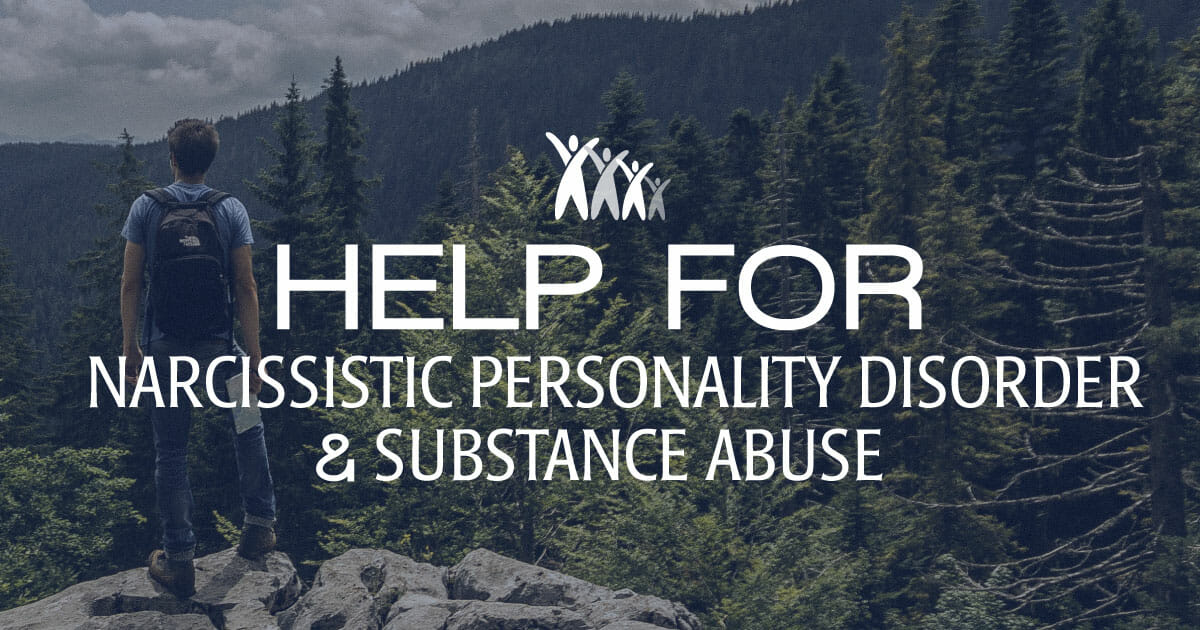Search by category, archive or keyword

Do you have a family member who:
- Displays a consistent pattern of self-centered, arrogant thinking and behavior?
- Has an excessive need for praise, appreciation, and admiration?
- Seems to lack empathy for other people?
If so, you may be dealing with a loved one with a narcissistic personality disorder.
If this family member also has issues with substance abuse, then you’ve probably found it impossible to get him or her to admit there’s even a problem, let alone agree to go to rehab.
One of the hallmarks of personality disorders is that affected individuals don’t perceive reality the same way as most people, which is why all the best reasoning you have put forward hasn’t been effective. In these cases, the right type of professional assistance is vital for both intervention and treatment.
Let’s learn how to recognize the signs of narcissistic personality disorder, understand how it can contribute to substance abuse, and how you can get help for a loved one.
What Is Narcissistic Personality Disorder?
Narcissistic personality disorder (NPD) is a mental disorder in the class of personality disorders in which the individual covers up deep-seated insecurities with fantasies about their own importance, and his or her life revolves around making this fantasy a reality.
NPD is more than simple selfishness: People with NPD truly believe their version of reality is correct and are often oblivious to (or unconcerned with) the damage that their arrogant and manipulative behavior does to those around them.
Signs and symptoms of narcissistic personality disorder include:
- Grandiosity and Arrogance – an exaggerated sense of their own importance and an unrealistic sense of superiority
- Need for Praise and Attention – a constant need for ego-boosting attention and admiration
- Self-Centered Worldview – obsessed with fantasies of power, success, beauty, wealth, fame, intelligence, ideal romance, etc., seeing oneself as the central hero in possession of greatness
- Denial of Reality – brushes off any evidence or criticism that doesn’t support their version of reality
- Sense of Entitlement – sees favorable treatment as owed to them, regardless of whether they’ve actually done anything special, and believes they can only be understood by other special people
- Lack of Empathy – unable to understand how other people feel or put themselves in others’ shoes
- Belittling Others – dismisses or ignores their allies and attacks those they feel threatened by in some way
- Manipulative – coerces and exploits others, both overtly and covertly, in pursuit of their own goals
- Jealousy – often jealous of others who have what they believe is their due and assume that others are jealous of them
How Narcissistic Personality Disorder Affects Relationships and Loved Ones

It’s not easy being in a relationship with a narcissist. You are expected to make them the center of your life and provide the substantial attention they need while they ignore your needs – unless doing something for you is in their best interest.
Fantasies of greatness allow the narcissist to avoid deeper feelings of unworthiness and self-doubt. Because bursting the fantasy bubble would mean having to acknowledge these painful underlying feelings and fears, narcissists become extremely defensive and angry whenever someone tries to give them a reality check.
As a result, people in the narcissist’s life learn to tread carefully by:
- Ignoring statements that are inaccurate or outright lies
- Going along with their fantasies
- Stroking their ego with compliments and praise
The fantasy must be maintained, but because it’s not real, it requires constant work to keep it going – both from the narcissist and the people in his or her life.
Narcissists surround themselves with people who will provide the constant, over-the-top praise needed to confirm their superior status on an ongoing basis. They also prefer the company of people who they can manipulate and control emotionally and physically.
Because they lack empathy, they will often manipulate and abuse others without any sense of shame or wrongdoing. The belief in their superiority gives them, in their minds, the license to treat others however they like.
They can only see the world and all of life’s circumstances from one perspective: their own. Therefore, if something is good or bad from their point of view, they assume that judgment holds true for everyone else as well. If there is a disagreement in opinions, they believe their opinion to be right and the other person’s opinion to be wrong.
Broken Relationships and the Narcissist’s Response
In relationships, it’s all about the narcissist’s needs and accomplishments. Loved ones are expected to provide unconditional support in the form of praise, comply with the narcissist’s desires, and go along with their version of reality. When a loved one fails to meet these needs, the narcissist sees it as betrayal and responds accordingly.
Leaving the relationship is considered the ultimate betrayal by the narcissist because it endangers their fantasy of greatness. Because narcissists often see the people in their lives as their possessions and possessions as being the confirmation of their greatness, a breakup strikes at the heart of their sense of self-confidence, and they respond accordingly.

Because the narcissist can only view life from their own point of view and truly believe that their reality is the only reality, they’re unable to understand why others get upset with them. When they are criticized, they think the other person is trying to pull them down, doesn’t understand them, is jealous of them, and so forth. It’s always someone else’s fault, or someone else is the problem.
When someone asks them to change their ways, narcissists think the other person is being selfish and that the other person should change. They literally can’t understand why what they’re doing is wrong because to acknowledge any fault in their own behavior would put the entire fantasy – and, therefore, their whole foundation of self-worth – at risk.
Narcissistic Personality Disorder and Substance Abuse
As you can imagine, people with NPD often have difficulty fitting into society because their view of the world is so different from everyone else’s. Maintaining relationships and careers can be challenging because other people become fed up with their arrogance, manipulation, unrealistic attitude, and lack of empathy.
This can cause a person with NPD to feel like an outcast when what they desperately want is to be the star of the show. This, in turn, can lead to drug and alcohol abuse to try and cope with the discrepancies between their fantasy and reality. Mental health and substance abuse issues commonly go together.
Dual Diagnosis Intervention for Personality Disorders and Substance Abuse
If a loved one shows signs of NPD, it’s important to seek out a diagnosis from a mental health professional. It’s especially critical if the person also has a substance abuse problem.
One of the hallmarks of NPD is that the person is in denial that they have a problem. The typical treatment approaches for drug and alcohol addiction may not be as effective because it requires a person first to admit that they’re addicted and need to change.
In this type of situation, it’s important to treat both the personality disorder and the addiction. You’ll want your loved one to be treated by experts in dual-diagnosis personality disorders.
If a loved one shows signs of substance abuse and the symptoms of a personality disorder, it is important to seek professional help for proper treatment. Only clinical psychologists should diagnose specific personality disorders, so be sure that any treatment center you’re considering has professionals who can treat co-occurring addiction and mental health disorders.
Let Us Develop a Comprehensive Treatment Plan for Your Loved One with NPD
An intervention is not about how to control the substance user; it is about how to let go of believing you can.
“The most formidable challenge we professionals face is families not accepting our suggested solutions. Rather, they only hear us challenging theirs. Interventions are as much about families letting go of old ideas as they are about being open to new ones. Before a family can do something about the problem, they must stop allowing the problem to persist. These same thoughts and principles apply to your loved one in need of help.”
Mike Loverde, MHS, CIP



